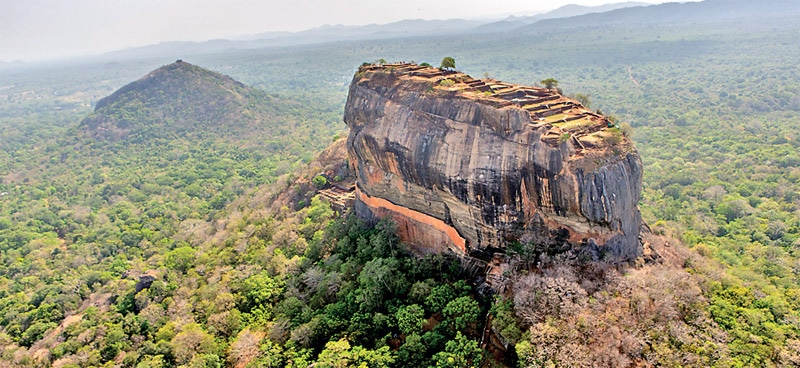
Sustaining its brand visibility and universal appeal on a global platform, Sri Lanka Tourism is once again in the spotlight with the recent recognition by Bloomberg Businessweek.
Sri Lanka Tourism said in a statement that the Sigiriya Rock Fortress was listed as one of the new Seven Wonders of the World, making Sri Lanka the only Asian country to make it onto the list along with six other iconic sites appealing to the new age traveller with a thirst for adventure.
These marvels include archaeological and natural treasures spanning far wider than the ancient Greek world and catering to all types of modern explorers.
Dating back to King Kashyapa in the fifth century A.D., Sigiriya is the “perfect amalgam of human-made treasure and natural wonder”, enthuses Bloomberg. Nicknamed Lion Rock – a reference to the paws sculpted into the base of the 660 ft. tall stone – it includes elaborate cisterns and gardens, frescoed caves, and a winding stairway to the crowning citadel.
Sri Lanka Tourism has strategically embarked on developing Sigiriya, a World Heritage site, into a sustainable destination under the National Sustainable Destination Certification (NSDC) initiative. Sustainable tourism is essential to protect natural, cultural, and environmental resources which are critical for the wellbeing of Sri Lanka’s tourism industry. If these valuable resources are not sustained, Sri Lanka could see dwindling tourist numbers in the future.
In keeping with this initiative, single-use plastic has been recently banned in Sri Lanka. While sustaining our resources, this strategy will also provide locals more opportunities to practice ancient arts and crafts to cater to demand for sustainable materials.
Sri Lanka Tourism said particularly post-COVID 19, there will be an emergence of the conscious traveller with demands for all aspects of their travel to be sustainable with minimum travel footprint.
With foresight on global tourism moving towards sustainable growth, Sri Lanka Tourism initiated the National Sustainable Tourism Certification (NSTC) for the accommodation sector. Furthermore, Sri Lanka Tourism continues to study the product and services offered by their regional rivals and differentiate the Sri Lankan Tourism offering while highlighting the multitude of immersive experiences available to explore on the island.
Sri Lanka Tourism recognises that in order to sustain livelihoods dependent on the tourism industry, it is imperative that in addition to regulations, all stakeholders are educated and provided with the necessary tools to develop sustainably. With the assistance of international partner agencies, this initiative is currently in progress with several ongoing pilot projects.
Additionally, the Authority is a member of the Global Sustainable Tourism Council (GSTC), which further strengthens the islands position as a sustainable destination. Sustainable tourism is no longer an option, it is a crucial element which is essential to the development of the country’s tourism industry.
